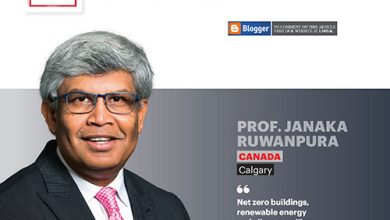THE ROVING DIPLOMAT
TRIBUTE SERIES
JULY 2001
CHASING AN ELUSIVE PEACE
The chances of peace talks are slim in spite of efforts to ease the tensions
At a time when relations between India and Pakistan have been steadily deteriorating, the invitation to talks extended by Indian Prime Minister Atal Bihari Vajpayee to Pakistani President General Pervez Musharraf has been accepted. The talks are scheduled for July in New Delhi.
At the same time, India has terminated the ceasefire that it had maintained in Kashmir over the recent past.
The proposed peace talks appear to be a continuation of lndia’s policy to defuse tensions between the two countries with regard to Kashmir. However, a number of issues need to be resolved first. And there appears to be a divergence of views on what the agenda should contain.
India regards the talks as an opportunity for a general discussion that would establish the basis for a dialogue between the two countries. However, Pakistan believes that the agenda should focus primarily on Kashmir.
Delhi is clearly attempting to play down that conversation since it maintains that Kashmir is part of India. A major problem that Islamabad has to deal with is the mindset of militant and political groups, notably the Hurriyat.
India’s interlocutor on Kashmir K. C. Pant is holding talks with these militant groups in the hope of obtaining their support for the peace talks. So far nothing has changed and they’re continuing to demand that the talks should focus on Kashmir and that they too should be invited to participate.
A statement by India’s External Affairs Minister Jaswant Singh claims that Jammu and Kashmir remains an integral part of India, and rejects Pakistan’s call for a referendum. The present position is that while the decision by both sides to hold talks is welcome, doubts remain as to the core area of discussion.
Meanwhile, the success of Chief Minister Jayaram Jayalalithaa in Tamil Nadu is a threat to the coalition government. And in this context, the opposition led by Sonia Gandhi has also been exploiting the situation and gaining prestige for itself. It’s clear that the Bharatiya Janata Party (BJP) is facing serious challenges from within and without, and the bold stand it has taken in calling for peace talks with Pakistan speaks well for its confidence and courage.
Turning to the Middle East, the peace process is in a deadlock with both sides unable to break the cycle of violence. This bout of hostility has claimed over 500 Palestinian lives so far – as well as several Israeli lives. The status quo is naturally undermining the peace process as both parties are engaged in recrimination against each other despite assurances that they will call an end to the fighting.
For his part, President of the Palestinian National Authority Yasser Arafat has called on the military groups to refrain from violence and Israel has also indicated a desire to restrain its military force.
Nevertheless, these assurances have been of no avail as hardly a day passes without fresh acts of violence, primarily in the form of car bombs in Jerusalem and retaliatory attacks by Israeli groups against Palestinian settlements. The state of civil war that’s prevailing in the territory gives an air of unreality to peace talks.
The US has decided to lend a hand and appointed US Assistant Secretary of State for Near Eastern Affairs William Burns to intervene, and urge both sides to enter into meaningful peace talks and refrain from violence.
US President George W. Bush has said that “it’s essential that the leaders in the Middle East speak out clearly against vio-lence. We must break the cycle of violence to begin meaningful discussions about any kind of political settlement.”
Amidst all this conflict and violence, the actual terms of the settlement have receded into the background.
An important step in this direction was the Michel Report, which called for an immediate ceasefire and confidence building measures, including a halt to settlement activities and tougher Palestinian action against terrorism. The United Nations Security Council has endorsed the proposals in the Michel Report, which “condemned the violence and called for an immediate unconditional cessation of violence by both sides.”
The situation has been further aggravated by the decision at the recent summit meeting of the Organisation of the Islamic Conference to suspend all political contacts with Israel as long as its aggression towards the Palestinian people continues.
Despite the condemnation of violence by all parties concerned – especially the international community – there are no signs of an end to the fighting. It seems that all are virtually helpless and can’t control the situation in order to create a climate that’s conducive to constructive peace talks.






